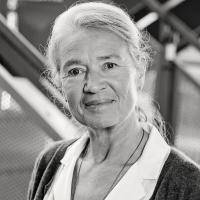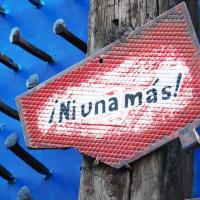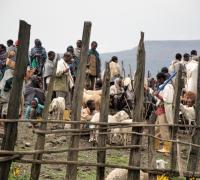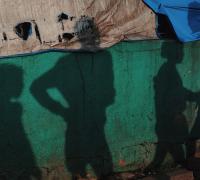Livestreaming
Climate change and contemporary migration

Watch the livestreaming here
Research on climate mobility - including its drivers, patterns, and consequences – has been criticised for being somewhat simplistic, ahistorical, and environmentally deterministic. Lately projections of future climate refugees have come under critical scrutiny.
Globally, most climate change related migration is occurring within countries, although in some areas longer distance migration is on the rise. In Central America, people displaced due to climate change have for some time relocated to neighboring countries and North America. In other regions, e.g. sub-Saharan Africa, people increasingly move to places further away from home.
During this public seminar we explore how climate change affects contemporary migration patterns by focusing on the ways in which structural constraints and precipitating events enable and constrain current international migration flows; primarily with empirical examples from Central America, but in dialogue with what’s happening on the Horn of Africa. As theory matters for how we make sense of empirical phenomena, we have invited a leading expert on the structural roots of inequalities and the ways individuals' social and environmental location shape mobility response to such conditions to enlighten the debate, Professor Cecilia Menjivar.
This public seminar with professor Menjívar is hosted by the PATHWAYS collaborative research programme and is jointly funded by DIIS’ Climate Initiative and a generous grant from the Fulbright Specialist Program.
Professor Cecilia Menjivar's work is centered on the social, political, and, lately, the environmental contexts driving migration (mostly from Central America), the contexts migrants encounter (mostly in the United States) and the judicial system failures that sustains violence in the countries of origin. Her latest publications explore overlapping migration crises, undocumented and unaccompanied minors, the gendered effects of immigration enforcement, and return movements. Menjívar holds degrees from University of Southern California and UC-Davis; is professor of sociology at UCLA and is affiliated to a range of research and policy initiatives, including the immigration initiative at Harvard, the California Center for Population Research, and the Immigrant Youth Task Force at UCLA.
Senior Researcher Ninna Nyberg Sørensen's research focuses on the tension between migration, conflict and development. She has explored local and international processes leading to forced and voluntary migration, regulatory measures, and the effects of migration on local communities and states in the global South, formerly in Central America, currently on the Horn of Africa.
Programme
14.30-14.35 Introduction, Ninna Nyberg Sørensen
14.35-15.20 Climate mobility, migration theory and why categorisation matters, Cecilia Menjivar
15.20-16.00 Q&A
The seminar was held and recorded on 14 September 2023, 14.30-16.00 at DIIS Auditorium.
Sign up
DIIS Experts






